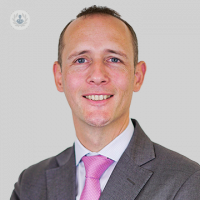Understanding skin cancer: types, symptoms, and prevention
Written in association with:Skin cancer is the most common form of cancer worldwide, with millions of cases diagnosed each year. It occurs when abnormal cells in the skin grow uncontrollably, often due to damage caused by exposure to ultraviolet (UV) radiation from the sun or tanning beds. While most skin cancers are treatable when detected early, they can become life-threatening if left unchecked.

Types
There are three main types of skin cancer: basal cell carcinoma (BCC), squamous cell carcinoma (SCC), and melanoma.
-
Basal cell carcinoma is the most common form, usually developing on areas of the skin that receive the most sun exposure, such as the face, neck, and arms. BCC grows slowly and rarely spreads to other parts of the body, but it can cause significant local damage if untreated.
-
Squamous cell carcinoma is the second most common type and can also occur on sun-exposed areas. It tends to grow more quickly than BCC and can spread to nearby tissues or lymph nodes if not treated.
-
Melanoma is the most dangerous form of skin cancer. It develops in melanocytes, the cells that produce pigment in the skin. Melanoma can appear anywhere on the body and is more likely to spread to other organs. Early detection is crucial, as melanoma can be fatal if it metastasizes.
Signs and symptoms
Signs and symptoms of skin cancer vary but often include changes in the appearance of the skin. Watch for new growths, sores that don't heal, or changes in moles, such as asymmetry, irregular borders, multiple colors, large diameter, or evolving shape (the "ABCDE" rule).
Prevention
Prevention is key in reducing the risk of skin cancer. Limiting exposure to UV radiation by wearing sunscreen, protective clothing, and seeking shade can help protect your skin. Avoiding tanning beds is also crucial, as they significantly increase the risk of developing skin cancer.
If you notice any unusual changes in your skin, it's important to see a healthcare provider for evaluation. Early detection and treatment of skin cancer can lead to a high chance of recovery and prevent complications. By being proactive about sun protection and monitoring your skin, you can reduce the risk of developing this common but preventable disease.


